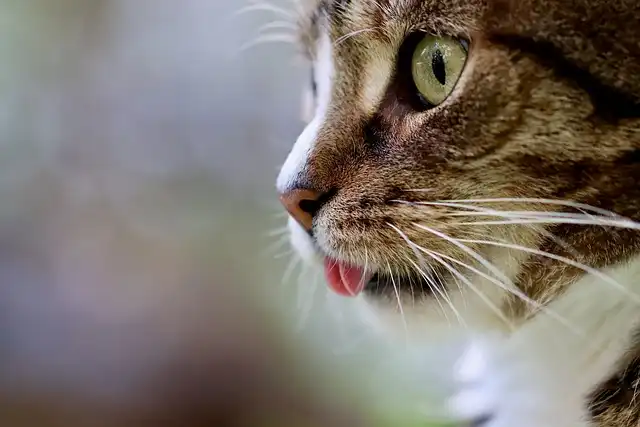Antioxidants for Cats: Benefits, Risks & Diet Guide

Antioxidants protect cats from free radicals and oxidative stress. Ensure your cat gets enough antioxidants through a balanced diet. Supplementing can be risky. Senior cats particularly benefit. AAFCO guidelines are key.
Free radicals are linked to several conditions in felines, as well as premature aging. As being generated normally, points like contamination, cigarette smoke, infections, and direct exposure to toxins can all boost complimentary radicals in your feline’s body.
Free Radicals & Cat Health
Your feline’s body need to keep the best balance of complimentary radicals and antioxidants to avoid damages. When totally free radicals overpower anti-oxidants, it brings about ‘oxidative stress and anxiety’, which can be detrimental to their health and wellness. This is why ensuring your pet cat has sufficient anti-oxidants in their diet regimen is essential.
Nat is a keen runner and has a passion for wellness, both within and outside the vet profession where she strives to sustain others in their own health and wellbeing. She lives in Nottingham with her companion, their young child and their precious 14 years of age laboratory x collie, Milly … View much more
They likewise found that the immune cells themselves were more powerful and less fragile in cats fed a diet abundant in anti-oxidants contrasted to those on a typical diet plan. This can make them far better at eradicating illness and infection.
Antioxidant Benefits for Felines
Anti-oxidants are nutrients that prevent or slow-moving damages triggered to your cat’s cells by cost-free radicals. Anti-oxidants are important to your pet cat’s body immune system and are believed to reduce their risk of conditions like diabetes mellitus, cancer cells, and cognitive decline. Examples made use of in cats include vitamins E and Beta-carotene, selenium, and c.
Strictly talking, anti-oxidants aren’t particular components, yet materials that have antioxidant homes, generally to name a few advantages. Examples important recognized to have antioxidant impacts in pet cats include:
How to Provide Antioxidants?
The safest way to ensure your feline receives the right degree of anti-oxidants is to feed them a commercial diet plan that is balanced and complete. Selecting a diet regimen particular for their life stage, such as a senior diet, will additionally take into consideration the boosted demand for antioxidants in older pet cats.
Commercial diet regimens containing antioxidants that are approved by the AAFCO (or the family pet food safety and security company in your country) are taken into consideration safe. They are examined to ensure that they include the levels of nutrients they declare, and these levels need to be within secure arrays. Although, of course, not all diet regimens will agree with every private feline.
The good news is that all diet regimens that are balanced and full, as established by the Association of American Feed Control Officials (AAFCO), must have sufficient amounts of crucial trace elements. This consists of some with antioxidant residential properties, such as vitamin Taurine, e, and selenium.
Currently you know just how important antioxidants are, you’ll wish to guarantee your pet cat is obtaining sufficient. There are 3 main methods to guarantee this: checking your feline’s diet regimen satisfies AAFCO criteria, selecting a diet plan with included anti-oxidants, or providing your cat an additional supplement.
Antioxidants can be discovered in meat-based and plant-based ingredients. While your pet cat might tolerate percentages of plant-based options (such as wonderful potato, blueberries, pumpkin, algae or leafy environment-friendlies), meat, fish, and eggs use an even more carnivore-appropriate choice to enhance their degrees of anti-oxidants.
High levels of vitamin A (usually seen in pet cats fed a diet rich in liver or cod liver oil) can cause throwing up, anorexia, muscle discomfort, and neurological signs and symptoms, as well as significant modifications to your cat’s bones. Excess vitamin E has actually been linked to bleeding issues in cats, while selenium poisoning in animals has been shown to cause damages to the muscular tissue, heart, liver, spleen, and kidneys.
Risks of Antioxidant Supplementation
Many supplements for felines include a selection of vitamins, minerals, and other ingredients, rather than just active ingredients with antioxidant residential properties. In a lot of countries, supplements are not as managed as other medicines. This indicates they can be sold without manufacturers having to show that the product has what it asserts to, is effective, or is risk-free.
Identifying the benefits of anti-oxidants, many specialized diet plans have included antioxidants. These include diet plans designed to handle wellness problems, such as heart problem and gastrointestinal problems.
The major threat of antioxidants in pet cats includes supplementing your pet cat’s existing total diet regimen, as it is difficult to know if they can be obtaining excessive. As stated over, in many countries, supplements are not well-regulated. This implies that firms are typically not called for to confirm supplements include what they assert to, or show that they are secure.
Even at the appropriate degrees, all supplements can trigger adverse effects, such as vomiting and looseness of the bowels. They also have the potential to connect with drug, including natural treatments. So, constantly consult your veterinarian before beginning your cat on a supplement.
Cats.com is a participant in the Amazon Providers LLC Associates Program, an affiliate advertising and marketing program designed to offer a way for sites to make advertising and marketing fees by advertising and connecting to Amazon.com. Each time you purchase via one of our independently-chosen links, we’ll receive a percent of the profits. Learn more below.
Cats.com makes use of high-quality, legitimate sources, including peer-reviewed research studies, to sustain the insurance claims in our write-ups. This web content is regularly reviewed and upgraded for accuracy. Visit our Regarding United States page to learn more about our standards and meet our vet evaluation board.
Your pet cat requires sufficient anti-oxidants to battle the levels of harmful totally free radicals in their body. We understand that the task of natural antioxidants decreases as your cat ages, making them extra susceptible to oxidative damages and disease. So, antioxidants are even more crucial for our elderly felines.
Antioxidants for Senior Cats
Nat is a keen jogger and has a passion for health and wellbeing, both within and outside the vet occupation where she strives to sustain others in their own wellbeing. She stays in Nottingham with her partner, their young child and their cherished 14 years of age laboratory x collie, Milly.
Like most things in life, you can get too much of an excellent thing. While antioxidants can certainly improve your feline’s general health and wellness and well-being, high degrees can be dangerous. Antioxidant toxicity is unusual in cats, however can be seen in felines fed excessive supplements or diets that are not suitably well balanced, such as home-cooked diet plans.
So, if your pet cat is fed a well balanced and full diet regimen ideal for their life stage, you can rest assured they will certainly already be getting a healthy and balanced dosage of antioxidants. To inspect if your feline’s food fulfills AAFCO criteria, search for the “AAFCO statement” on the packaging.
Antioxidants are nutrients that avoid or slow-moving damage caused to your feline’s cells by cost-free radicals. A lot of supplements for felines consist of a range of vitamins, minerals, and various other active ingredients, instead than simply active ingredients with antioxidant homes. Your pet cat requires sufficient anti-oxidants to fight the degrees of damaging complimentary radicals in their body. The primary threat of anti-oxidants in cats comes with supplementing your feline’s existing full diet, as it is challenging to understand if they could be getting too much. Antioxidant poisoning is rare in cats, yet can be seen in cats fed too much supplements or diets that are not suitably balanced, such as home-cooked diet plans.
1 AAFCO2 aging cats
3 antioxidants
4 cat diet
5 free radicals
6 Paramount Pet Health
« Dog Nail Care: Tips for Safe Trimming & HealthAdopting Failed Police Dogs: A Comprehensive Guide »
